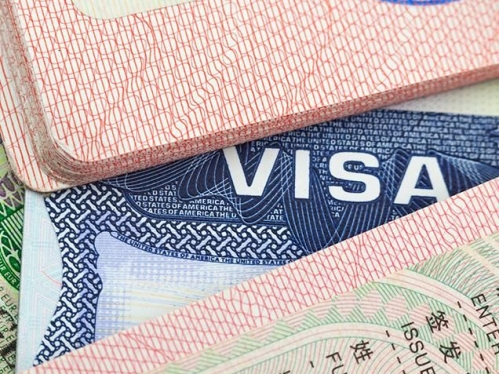
Resources
Here you will find information on subjects of particular importance to our international students and scholars.
F-1 and J-1 international students, scholars and Foreign Nationals sponsored by Rutgers have the ability to obtain a Social Security Number (SSN) once they have secured approved on-campus or off-campus employment for the first time. J-1 and H-1B international faculty & scholars are eligible for an SSN ten (10) days after arrival in the U.S. J-1 scholars must first complete the check-in process with Rutgers Global – ISSS before applying.
Individuals are only granted one SSN for life, and you do not need to apply for a new SSN for each additional employer. The SSN is used mainly for tax purposes. SSNs are granted by the Social Security Administration (SSA). Our office works closely with the SSA office located in New Brunswick.
Additional information on Social Security Numbers
-
The following individuals are eligible to apply for an SSN:
- F-1 and J-1 students with a job offer letter and/or work permission, both on-campus and off-campus
- J-1 Scholars
- H-1B EmployeesJ-2 and H-4 Dependents with an Employment Authorization Document (EAD Card)
- Other individuals with an immigration status that allows employment authorization (Please note our office can only advise on Rutgers supported visa types)
The Social Security Administration recommends waiting 10 days after arriving in the U.S. to apply for an SSN. Those in J or F status must also have their SEVIS records activated before applying.
-
Review information below and utilize the Rutgers Global-ISSS SSN Handout for a helpful reference.
To apply for a Social Security Number, go to www.ssa.gov/number-card to start the process online. After you have completed the online application, you then may request an appointment to visit the local Social Security office. If you do not find an appointment that suits your schedule, you may enter a different zip code to view available appointments at another Social Security office. Please note that the Social Security Administration no longer accepts walk-ins, and all SSN applicants must schedule an appointment. You must present your original documents to the Social Security office within 45 days of completing the online application.
IMPORTANT: If you are located in New Brunswick, please use the following information to apply for your SSN
Step 1) Complete necessary workshops in the RGlobal portal under the “Workshops” tab. You will need to complete these workshops before you can obtain needed documents for your SSN application.
- Complete the Staying in Legal Status workshop.
- Learn about On-Campus or Off-Campus Employment (i.e. CPT) in our online Employment Workshops
Step 2) Students prepare their SSN application packet.
A complete packet must include:
See below and here for more information.
- Original valid passport with F/J/H-1B visa stamp inside
- Printed I-94 record
- For F-1 Students, original I-20 document (both current and previous)
- For J-1 Exchange Visitors, most recent DS-2019- (F-1/ J-1 students only) Social Security Letter, signed by the student’s Designated School Official (DSO/ARO), obtained from the RGlobal Portal (you will need the SS letter even if you are applying based on OPT or CPT)
- Proof of employment:
- If on-campus, F-1 students submit the On-campus Verification Letter and J-1 students Employment Verification Form for J-1 Students (completed by your on-campus employer) with an original, wet PEN ink signature from your hiring manager. You must bring the original document that was signed with a pen - not a scanned copy. Digital signatures are NOT accepted.
- If off-campus,F-1 and J-1 students must have a job offer letter (e.g. OPT/CPT/AT offer letter) from employer with an original, wet signature from your hiring manager and I-20/DS-2019 that shows CPT/OPT/AT recommendation on it. J-1 students on Academic Training will also need their AT letter signed by their ARO.
Step 3) Ensure the SEVIS record has been activated, then complete the online SSN application and visit the SSA office within 45 days with the required documents. All Social Security Administration offices now require customers to schedule an appointment for service in their field offices, including requests for Social Security Numbers. Students are advised to book their appointments through the online system and bring their application reference number with them to their scheduled appointment at the New Brunswick SSA office:
Social Security Administration
550 Jersey Ave, Suite 200
New Brunswick NJ 08901Step 4) An SSA staff member will review the SSN application packet and, if everything is in order, will provide a receipt notice for the application. The applicant should receive their SSN card in the mail within 7-14 days.
-
Once you have completed the online check-in process with ISSS after your arrival at Rutgers, you may apply for a Social Security Number (SSN) after 10 business days. Please go to https://www.ssa.gov/number-card/request-number-first-time to start the process online.
After you have completed the online application, you will select an appointment at a local Social Security office, which you can find here. Please note that there can be longer wait times for appointments. It is therefore important that you keep your sponsoring unit updated once you have made an appointment.
To prove your identity and work-authorized immigration status, you will need to bring the following documents:
- Passport
- Form I-94
- Form DS-2019 (J-1 Scholars) or Form I-797 (H-1B Employees)
- Invitation Letter or Appointment Letter
You should receive your SSN card in the mail within a few weeks after your appointment. It some cases, SSA may require additional time to verify your documents.
Once you receive your SSN, be sure to report it to your sponsoring unit. Otherwise, your SSN should not be given to others unless absolutely necessary.
-
SSN denial letters are sometimes needed. However, please note the NJ MVC no longer accepts them.
If you need a denial letter, please consult with ISSS for further guidance.
-
Those who are not eligible for a Social Security Number may be eligible for an Individual Taxpayer Identification Number (ITIN).
PLEASE NOTE: Students and faculty/scholars should NOT have an SSN and an ITIN at the same time. This can cause confusion in the IRS system. You will need to rescind your ITIN later on if you have the need to instead obtain an SSN.
From the IRS ITIN website:
“An ITIN, or Individual Taxpayer Identification Number, is a tax processing number only available for certain nonresident and resident aliens, their spouses, and dependents who cannot get a Social Security Number (SSN). It is a 9-digit number, beginning with the number "9", formatted like an SSN (NNN-NN-NNNN).”
"Once you receive a SSN, you must use that number for tax purposes and discontinue using your ITIN. It is improper to use both the ITIN and the SSN assigned to the same person to file tax returns. It is your responsibility to notify the IRS so we can combine all of your tax records under one identification number. If you do not notify the IRS when you are assigned a SSN, you may not receive credit for all wages paid and taxes withheld which could reduce the amount of any refund due."
To notify the IRS, follow the instructions here
For more detailed information on ITINs, refer to:
Publication 1915, Understanding Your Individual Taxpayer Identification Number PDF
-
Please note: Some of the following resources are external links, outside Rutgers.
Apply for a replacement or correction of the SSN card
FAQs for SSN
International Students and Social Security Numbers
Study in the States
Shopping Shuttle
Rutgers Global–International Student and Scholar Services arranges shopping shuttles to local stores throughout the semester and during the summer so international students and scholars can purchase groceries and other living essentials. The shopping shuttle is arranged by Rutgers Global as a free service to international students and scholars (i.e. those who hold an F-1, J-1, F-2, J-2, work visa through Rutgers, or other international status) and their dependents.
Check the Shopping Shuttle Schedule and reserve your spot on the sign-up sheet.
Note, the shopping shuttle runs on a loop during designated times, so you should be able to get on the next available shuttle of the run if you missed yours.

FAQs on Travel Ban
On June 4, 2025, a Presidential Proclamation was issued imposing travel restrictions on nationals from certain countries. A new Presidential Proclamation was subsequently issued, effective January 1, 2026, at 12:01 a.m. ET, that expands and modifies these restrictions. The following FAQs elaborate on the information posted on the Rutgers Global Alerts page.
Further information can be found in the accompanying fact sheet issued by the White House and guidance from the U.S. Department of State.

Accordion Content
-
Full Travel Ban: Nationals from the following 19 countries will be barred from entry to the U.S.: Afghanistan, Burma (Myanmar), Chad, Republic of the Congo, Equatorial Guinea, Eritrea, Haiti, Iran, Libya, Somalia, Sudan, Yemen, Burkina Faso, Mali, Niger, South Sudan, Syria, Laos and Sierra Leone
Partial Travel Ban: Nationals from the following 19 countries will be barred from entry to the U.S. in specific immigration statuses (including B-1, B2, B-1/B-2, F, M, and J visas): Burundi, Cuba, Togo, Venezuela, Angola, Antigua and Barbuda, Benin, Cote d ‘Ivoire, Dominica, Gabon, The Gambia, Malawi, Mauritania, Nigeria, Senegal, Tanzania, Tonga, Zambia, and Zimbabwe.
The ban on nonimmigrant visas for nationals of Turkmenistan has been lifted, but the ban on immigrant visas continues.
-
No. The Proclamation does not revoke existing visas, nor does it affect those already in the U.S. who maintain lawful status.
-
Yes. Individuals outside the U.S. with valid visas on January 1, 2026, and Green Card holders/lawful permanent residents are generally exempt. Dual nationals carrying passports from non-designated countries may also qualify for exceptions. The Proclamation outlines additional exemptions in Section 6.
Although those with valid visas and those who were in the U.S. as of January 1, 2026, should be considered exempt from this policy, it remains unknown how Customs and Border Patrol will apply these new rules. If your country of citizenship is subject to these restrictions, we recommend exercising caution and consulting with your campus international student and scholar services office or an immigration attorney prior to international travel, as visa issuance and U.S. re-entry are not guaranteed.
-
No, it is our understanding that the January 14 pause only applies to people who are outside of the U.S. and who are applying for permanent residency.
This should not affect Rutgers’ international students or employees on F-1, J-1, and H-1B visas as they are in a non-immigrant status.
If you apply for permanent residency while in the U.S. in non-immigrant status, you also are not impacted by this action, since you would be filling your form I-485 and applying for an “adjustment of status” within the U.S. and not applying for an immigrant visa at a U.S. embassy or consulate abroad.
The impacted countries include:
Afghanistan, Albania, Algeria, Antigua and Barbuda, Armenia, Azerbaijan, Bahamas, Bangladesh, Barbados, Belarus, Belize, Bhutan, Bosnia and Herzegovina, Brazil, Burma, Cambodia, Cameroon, Cape Verde, Colombia, Cote d’Ivoire, Cuba, Democratic Republic of the Congo, Dominica, Egypt, Eritrea, Ethiopia, Fiji, The Gambia, Georgia, Ghana, Grenada, Guatemala, Guinea, Haiti, Iran, Iraq, Jamaica, Jordan, Kazakhstan, Kosovo, Kuwait, Kyrgyz Republic, Laos, Lebanon, Liberia, Libya, Moldova, Mongolia, Montenegro, Morocco, Nepal, Nicaragua, Nigeria, North Macedonia, Pakistan, Republic of the Congo, Russia, Rwanda, Saint Kitts and Nevis, Saint Lucia, Saint Vincent and the Grenadines, Senegal, Sierra Leone, Somalia, South Sudan, Sudan, Syria, Tanzania*, Thailand, Togo, Tunisia, Uganda, Uruguay, Uzbekistan, and Yemen.
We will update this FAQ as more information becomes available.
-
If inside the U.S., travel is allowed, but re-entry is not guaranteed if your country is on the ban list. If you need to renew your visa, visa issuance is not guaranteed. We recommend consulting with your campus international student and scholar services office or an immigration attorney prior to international travel.
If outside the U.S. without a valid visa by January 1, 2026, you may not be allowed entry until the restrictions change.
-
At this point, there are no recent or proposed policies that would impact a visa holder’s ability to travel within the U.S. since domestic travel does not require passing through CBP inspection. However, it has been and continues to be advised that visa holders carry their immigration documents (passport, visa, Form I-20/DS-2019, Form I-797, I-94, etc.) with them when traveling within the country. Additionally, please be reminded that travel to Canada, Mexico, and many of the adjacent islands is considered international travel and requires CBP inspection upon return to the U.S.
-
- Stay in the U.S. if possible until there is clarity on implementation at ports of entry.
- If outside the U.S., do not attempt to re-enter without a valid visa.
- Monitor Rutgers ISSS communications -- this situation is evolving.
-
If you are a new student or scholar from an affected country and currently do not have a valid visa, according to Department of State, you may still submit a visa application and schedule an interview, but you “may be ineligible for visa issuance or admission to the United States.” Visa issuance is not guaranteed.
Incoming students should contact the admissions office and/or their programs, and incoming scholars should contact their campus international office to discuss alternatives.
-
Please continue to check for visa appointments at an Embassy or Consulate near you. Unfortunately, even if you are from an impacted country and can secure a visa appointment, visa issuance could be delayed. Additionally, visa approval and U.S. entry are also not guaranteed.
-
Continue with the process of completing DS-160 etc. If your visa is not issued prior to January 1, 2026, incoming students should contact the admissions office and/or their programs, and incoming scholars should contact their sponsoring unit.
-
Check Rutgers Global Alerts and watch for emails from your campus international services office.
Contact ISSS/your campus international services office directly for support -- including visa extensions, start date adjustments, and travel signatures.
Rutgers Global – International Student Services - ISSS Student Advising Services – 848-932-7015
Rutgers Global – International Faculty & Scholar Services – ISSS International Faculty & Scholar Advising Services - 848-932-7800
Rutgers Newark – Office of International Student and Scholar Services (OISS) OISS Student Advising Services – 973-353-1427
Rutgers Camden - International Students & Global Programs - 856-225-6832
We will continue to make updates when additional information becomes available. Please note that this is general information and not legal advice. Contact immigration@global.rutgers.edu if you have questions.





Social Security
Review information about eligibility and applying for a Social Security Number below.